Abstract:
The observer-based stabilization of network-based interval type-2 (IT2) semi-Markov jump models is investigated, where a new control strategy based on redundant channels ...Show MoreMetadata
Abstract:
The observer-based stabilization of network-based interval type-2 (IT2) semi-Markov jump models is investigated, where a new control strategy based on redundant channels is proposed to overcome the adverse effects of packet loss. The IT2 fuzzy method is adopted to describe the nonlinear objects, which overcomes the uncertainty problem of the traditional T-S fuzzy model. An observer-based control strategy is adopted due to the difficulty of obtaining complete state information under a complicated network environment. The main novelty is that redundant channels are adopted to construct a suitable observer-based feedback control scheme, and the auxiliary variable is introduced to solve the matrix dimension problem to achieve better dynamic performance of IT2 fuzzy networked semi-Markov jump models, improve the stability and anti-interference ability of the system, and overcome the difficulty caused by potential packet loss. Based on the semi-Markov kernel, IT2 fuzzy, and the Lyapunov functions dependent on the elapsed time, sufficient criteria are constructed for the considered system to ensure the \sigma -error mean-square stability. Furthermore, the expected solvability is constructed for an observer-based feedback controller under a linear matrix inequality framework. Ultimately, the tunnel circuit model verifies the proposed control method.
Published in: IEEE Transactions on Circuits and Systems I: Regular Papers ( Volume: 71, Issue: 12, December 2024)
Funding Agency:
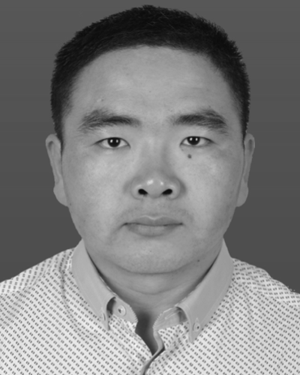
School of Engineering, Qufu Normal University, Rizhao, China
Wenhai Qi (Senior Member, IEEE) received the B.S. degree in automation and the M.S. degree in control science and engineering from Qufu Normal University, Rizhao, China, in 2008 and 2013, respectively, and the Ph.D. degree in control theory and control engineering from Northeastern University, Shenyang, China, in 2016. He was a Visiting Scholar with the Department of Electrical Engineering, Yeungnam University, Gyeongsan,...Show More
Wenhai Qi (Senior Member, IEEE) received the B.S. degree in automation and the M.S. degree in control science and engineering from Qufu Normal University, Rizhao, China, in 2008 and 2013, respectively, and the Ph.D. degree in control theory and control engineering from Northeastern University, Shenyang, China, in 2016. He was a Visiting Scholar with the Department of Electrical Engineering, Yeungnam University, Gyeongsan,...View more
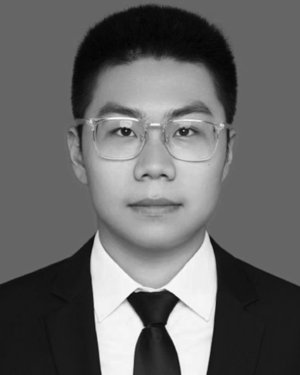
School of Engineering, Qufu Normal University, Rizhao, China
Runkun Li received the B.S. degree in automation from Qingdao University of Technology, Qingdao, China, in 2022. He is currently pursuing the M.S. degree in control science and engineering with the School of Engineering, Qufu Normal University, Rizhao, China. His current research interests include fuzzy systems, stochastic jump systems, networked control systems, and reinforcement learning.
Runkun Li received the B.S. degree in automation from Qingdao University of Technology, Qingdao, China, in 2022. He is currently pursuing the M.S. degree in control science and engineering with the School of Engineering, Qufu Normal University, Rizhao, China. His current research interests include fuzzy systems, stochastic jump systems, networked control systems, and reinforcement learning.View more
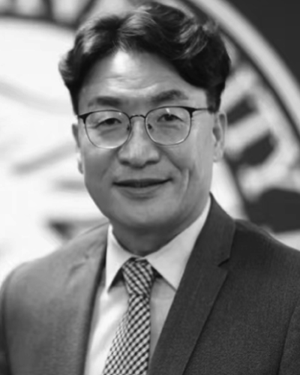
Department of Electrical Engineering, Yeungnam University, Gyeongsan, Republic of Korea
Ju H. Park (Senior Member, IEEE) received the Ph.D. degree in electronics and electrical engineering from the Pohang University of Science and Technology (POSTECH), Pohang, South Korea, in 1997.
From May 1997 to February 2000, he was a Research Associate with the Engineering Research Center–Automation Research Center, POSTECH. He joined Yeungnam University, Gyeongsan, South Korea, in March 2000, where he is currently the C...Show More
Ju H. Park (Senior Member, IEEE) received the Ph.D. degree in electronics and electrical engineering from the Pohang University of Science and Technology (POSTECH), Pohang, South Korea, in 1997.
From May 1997 to February 2000, he was a Research Associate with the Engineering Research Center–Automation Research Center, POSTECH. He joined Yeungnam University, Gyeongsan, South Korea, in March 2000, where he is currently the C...View more
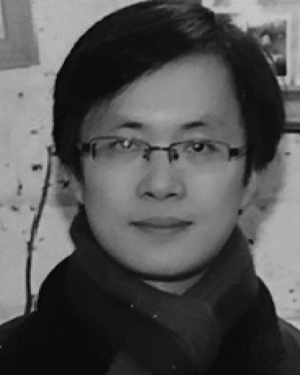
Institute of Cyber-Systems and Control, Zhejiang University, Hangzhou, China
Zheng-Guang Wu (Member, IEEE) was born in 1982. He received the B.S. and M.S. degrees in mathematics from Zhejiang Normal University, Jinhua, China, in 2004 and 2007, respectively, and the Ph.D. degree in control science and engineering from Zhejiang University, China, in 2011.
He is currently a Professor with the Institute of Cyber-Systems and Control, Zhejiang University. He has authored or coauthored more than 100 paper...Show More
Zheng-Guang Wu (Member, IEEE) was born in 1982. He received the B.S. and M.S. degrees in mathematics from Zhejiang Normal University, Jinhua, China, in 2004 and 2007, respectively, and the Ph.D. degree in control science and engineering from Zhejiang University, China, in 2011.
He is currently a Professor with the Institute of Cyber-Systems and Control, Zhejiang University. He has authored or coauthored more than 100 paper...View more
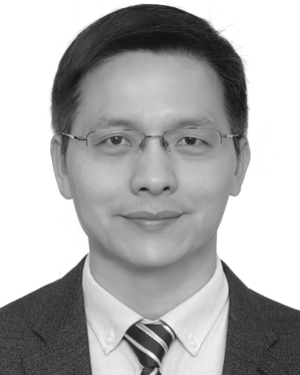
Key Laboratory of Smart Manufacturing in Energy Chemical Process of Ministry of Education, East China University of Science and Technology, Shanghai, China
Huaicheng Yan (Senior Member, IEEE) received the B.Sc. degree in automatic control from Wuhan University of Technology, Wuhan, China, in 2001, and the Ph.D. degree in control theory and control engineering from Huazhong University of Science and Technology, Wuhan, in 2007. From 2007 to 2009, he was a Post-Doctoral Fellow with The Chinese University of Hong Kong. From June 2011 to August 2011, he was a Research Fellow with...Show More
Huaicheng Yan (Senior Member, IEEE) received the B.Sc. degree in automatic control from Wuhan University of Technology, Wuhan, China, in 2001, and the Ph.D. degree in control theory and control engineering from Huazhong University of Science and Technology, Wuhan, in 2007. From 2007 to 2009, he was a Post-Doctoral Fellow with The Chinese University of Hong Kong. From June 2011 to August 2011, he was a Research Fellow with...View more

School of Engineering, Qufu Normal University, Rizhao, China
Wenhai Qi (Senior Member, IEEE) received the B.S. degree in automation and the M.S. degree in control science and engineering from Qufu Normal University, Rizhao, China, in 2008 and 2013, respectively, and the Ph.D. degree in control theory and control engineering from Northeastern University, Shenyang, China, in 2016. He was a Visiting Scholar with the Department of Electrical Engineering, Yeungnam University, Gyeongsan, South Korea, in 2017 and 2019. From 2019 to 2020, he visited the Department of Mechanical Engineering, The University of Hong Kong, Hong Kong. He is currently with the School of Engineering, Qufu Normal University. His research interests include Markov jump systems, switched systems, positive systems, and networked control systems. He is an Associate Editor of International Journal of Control, Automation, and Systems.
Wenhai Qi (Senior Member, IEEE) received the B.S. degree in automation and the M.S. degree in control science and engineering from Qufu Normal University, Rizhao, China, in 2008 and 2013, respectively, and the Ph.D. degree in control theory and control engineering from Northeastern University, Shenyang, China, in 2016. He was a Visiting Scholar with the Department of Electrical Engineering, Yeungnam University, Gyeongsan, South Korea, in 2017 and 2019. From 2019 to 2020, he visited the Department of Mechanical Engineering, The University of Hong Kong, Hong Kong. He is currently with the School of Engineering, Qufu Normal University. His research interests include Markov jump systems, switched systems, positive systems, and networked control systems. He is an Associate Editor of International Journal of Control, Automation, and Systems.View more

School of Engineering, Qufu Normal University, Rizhao, China
Runkun Li received the B.S. degree in automation from Qingdao University of Technology, Qingdao, China, in 2022. He is currently pursuing the M.S. degree in control science and engineering with the School of Engineering, Qufu Normal University, Rizhao, China. His current research interests include fuzzy systems, stochastic jump systems, networked control systems, and reinforcement learning.
Runkun Li received the B.S. degree in automation from Qingdao University of Technology, Qingdao, China, in 2022. He is currently pursuing the M.S. degree in control science and engineering with the School of Engineering, Qufu Normal University, Rizhao, China. His current research interests include fuzzy systems, stochastic jump systems, networked control systems, and reinforcement learning.View more

Department of Electrical Engineering, Yeungnam University, Gyeongsan, Republic of Korea
Ju H. Park (Senior Member, IEEE) received the Ph.D. degree in electronics and electrical engineering from the Pohang University of Science and Technology (POSTECH), Pohang, South Korea, in 1997.
From May 1997 to February 2000, he was a Research Associate with the Engineering Research Center–Automation Research Center, POSTECH. He joined Yeungnam University, Gyeongsan, South Korea, in March 2000, where he is currently the Chuma Chair Professor. He has coauthored the monographs Recent Advances in Control and Filtering of Dynamic Systems With Constrained Signals (New York, NY, USA: Springer-Nature, 2018) and Dynamic Systems With Time Delays: Stability and Control (New York, NY, USA: Springer-Nature, 2019). He has published a number of articles in these areas. His research interests include robust control and filtering, neural/complex networks, fuzzy systems, multiagent systems, and chaotic systems. He is a fellow of the Korean Academy of Science and Technology (KAST). Since 2015, he has been a recipient of the Highly Cited Researchers Award by Clarivate Analytics (formerly, Thomson Reuters) and listed in three fields, engineering, computer sciences, and mathematics, from 2019 to 2022. He is an Editor of an edited volume Recent Advances in Control Problems of Dynamical Systems and Networks (New York: Springer-Nature, 2020). He is a Subject Editor/an Advisory Editor/an Associate Editor/an Editorial Board Member of several international journals, including IET Control Theory and Applications, Applied Mathematics and Computation, The Journal of the Franklin Institute, Nonlinear Dynamics, Engineering Reports, Cogent Engineering, IEEE Transactions on Fuzzy Systems, IEEE Transactions on Neural Networks and Learning Systems, and IEEE Transactions on Cybernetics.
Ju H. Park (Senior Member, IEEE) received the Ph.D. degree in electronics and electrical engineering from the Pohang University of Science and Technology (POSTECH), Pohang, South Korea, in 1997.
From May 1997 to February 2000, he was a Research Associate with the Engineering Research Center–Automation Research Center, POSTECH. He joined Yeungnam University, Gyeongsan, South Korea, in March 2000, where he is currently the Chuma Chair Professor. He has coauthored the monographs Recent Advances in Control and Filtering of Dynamic Systems With Constrained Signals (New York, NY, USA: Springer-Nature, 2018) and Dynamic Systems With Time Delays: Stability and Control (New York, NY, USA: Springer-Nature, 2019). He has published a number of articles in these areas. His research interests include robust control and filtering, neural/complex networks, fuzzy systems, multiagent systems, and chaotic systems. He is a fellow of the Korean Academy of Science and Technology (KAST). Since 2015, he has been a recipient of the Highly Cited Researchers Award by Clarivate Analytics (formerly, Thomson Reuters) and listed in three fields, engineering, computer sciences, and mathematics, from 2019 to 2022. He is an Editor of an edited volume Recent Advances in Control Problems of Dynamical Systems and Networks (New York: Springer-Nature, 2020). He is a Subject Editor/an Advisory Editor/an Associate Editor/an Editorial Board Member of several international journals, including IET Control Theory and Applications, Applied Mathematics and Computation, The Journal of the Franklin Institute, Nonlinear Dynamics, Engineering Reports, Cogent Engineering, IEEE Transactions on Fuzzy Systems, IEEE Transactions on Neural Networks and Learning Systems, and IEEE Transactions on Cybernetics.View more

Institute of Cyber-Systems and Control, Zhejiang University, Hangzhou, China
Zheng-Guang Wu (Member, IEEE) was born in 1982. He received the B.S. and M.S. degrees in mathematics from Zhejiang Normal University, Jinhua, China, in 2004 and 2007, respectively, and the Ph.D. degree in control science and engineering from Zhejiang University, China, in 2011.
He is currently a Professor with the Institute of Cyber-Systems and Control, Zhejiang University. He has authored or coauthored more than 100 papers in refereed international journals. His current research interests include hybrid systems, Markov jump systems, sampled-data systems, fuzzy systems, multiagent systems, Boolean control networks, stochastic systems, and neural networks.
Dr. Wu was named a highly cited researcher (Clarivate Analytics). He is an invited reviewer of Mathematical Reviews of the American Mathematical Society. He serves as an Associate Editor/Editorial Board Member for some international journals, such as IEEE Transactions on Systems, Man, and Cybernetics: Systems, Journal of The Franklin Institute, Neurocomputing, International Journal of Control, Automation, and Systems, IEEE Access, International Journal of Sensors, Wireless Communications and Control, and IEEE Control Systems Society Conference Editorial Board.
Zheng-Guang Wu (Member, IEEE) was born in 1982. He received the B.S. and M.S. degrees in mathematics from Zhejiang Normal University, Jinhua, China, in 2004 and 2007, respectively, and the Ph.D. degree in control science and engineering from Zhejiang University, China, in 2011.
He is currently a Professor with the Institute of Cyber-Systems and Control, Zhejiang University. He has authored or coauthored more than 100 papers in refereed international journals. His current research interests include hybrid systems, Markov jump systems, sampled-data systems, fuzzy systems, multiagent systems, Boolean control networks, stochastic systems, and neural networks.
Dr. Wu was named a highly cited researcher (Clarivate Analytics). He is an invited reviewer of Mathematical Reviews of the American Mathematical Society. He serves as an Associate Editor/Editorial Board Member for some international journals, such as IEEE Transactions on Systems, Man, and Cybernetics: Systems, Journal of The Franklin Institute, Neurocomputing, International Journal of Control, Automation, and Systems, IEEE Access, International Journal of Sensors, Wireless Communications and Control, and IEEE Control Systems Society Conference Editorial Board.View more

Key Laboratory of Smart Manufacturing in Energy Chemical Process of Ministry of Education, East China University of Science and Technology, Shanghai, China
Huaicheng Yan (Senior Member, IEEE) received the B.Sc. degree in automatic control from Wuhan University of Technology, Wuhan, China, in 2001, and the Ph.D. degree in control theory and control engineering from Huazhong University of Science and Technology, Wuhan, in 2007. From 2007 to 2009, he was a Post-Doctoral Fellow with The Chinese University of Hong Kong. From June 2011 to August 2011, he was a Research Fellow with The University of Hong Kong. From February 2012 to August 2012, he was a Research Fellow with the City University of Hong Kong. He is currently a Professor with the School of Information Science and Engineering, East China University of Science and Technology, Shanghai, China. His research interests include networked control systems, multi-agent systems, and robotics. He is an Associate Editor of the IEEE Transactions on Neural Networks and Learning Systems, IEEE Transactions on Fuzzy Systems, International Journal of Robotics and Automation, and IEEE Open Journal of Circuits and Systems.
Huaicheng Yan (Senior Member, IEEE) received the B.Sc. degree in automatic control from Wuhan University of Technology, Wuhan, China, in 2001, and the Ph.D. degree in control theory and control engineering from Huazhong University of Science and Technology, Wuhan, in 2007. From 2007 to 2009, he was a Post-Doctoral Fellow with The Chinese University of Hong Kong. From June 2011 to August 2011, he was a Research Fellow with The University of Hong Kong. From February 2012 to August 2012, he was a Research Fellow with the City University of Hong Kong. He is currently a Professor with the School of Information Science and Engineering, East China University of Science and Technology, Shanghai, China. His research interests include networked control systems, multi-agent systems, and robotics. He is an Associate Editor of the IEEE Transactions on Neural Networks and Learning Systems, IEEE Transactions on Fuzzy Systems, International Journal of Robotics and Automation, and IEEE Open Journal of Circuits and Systems.View more


